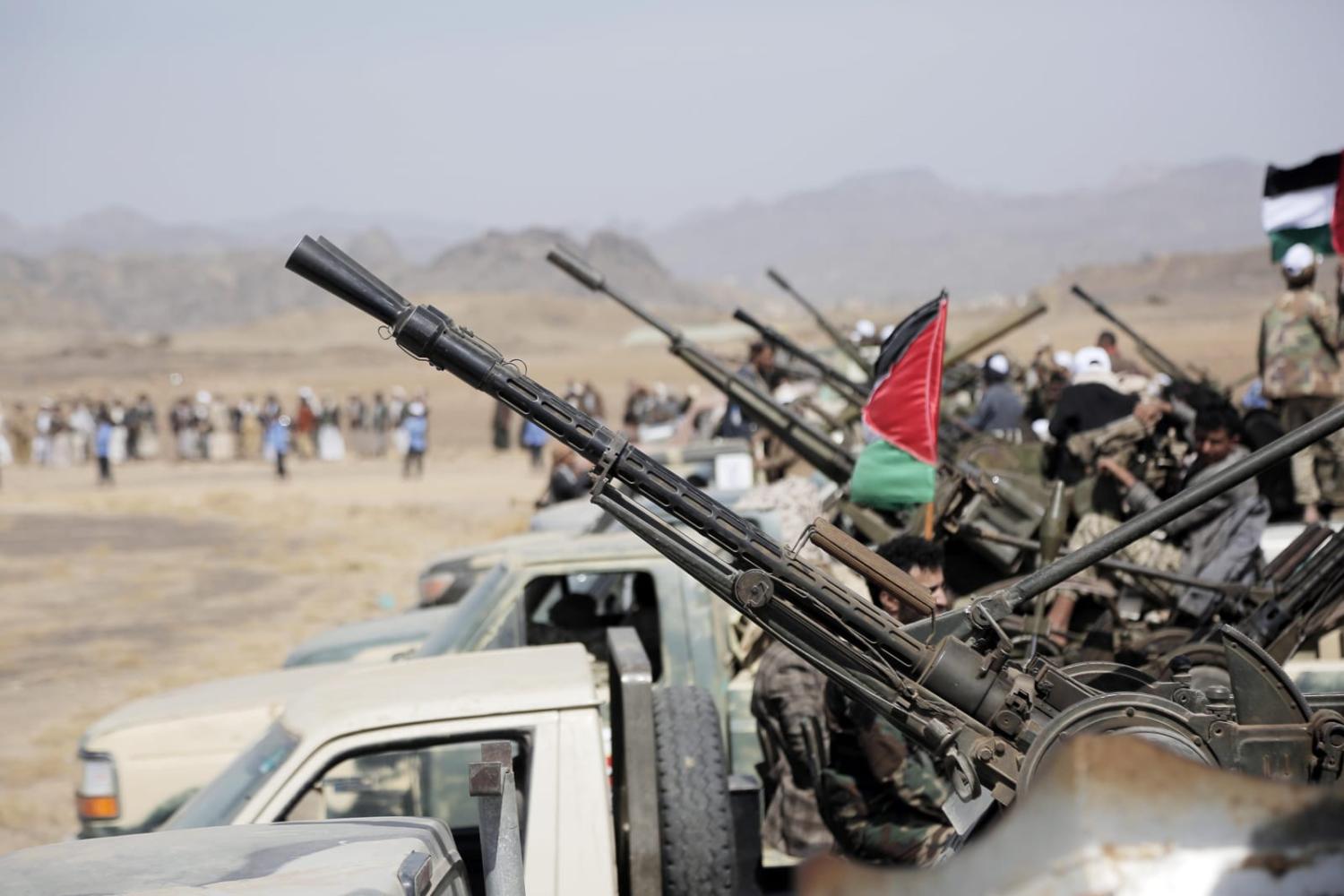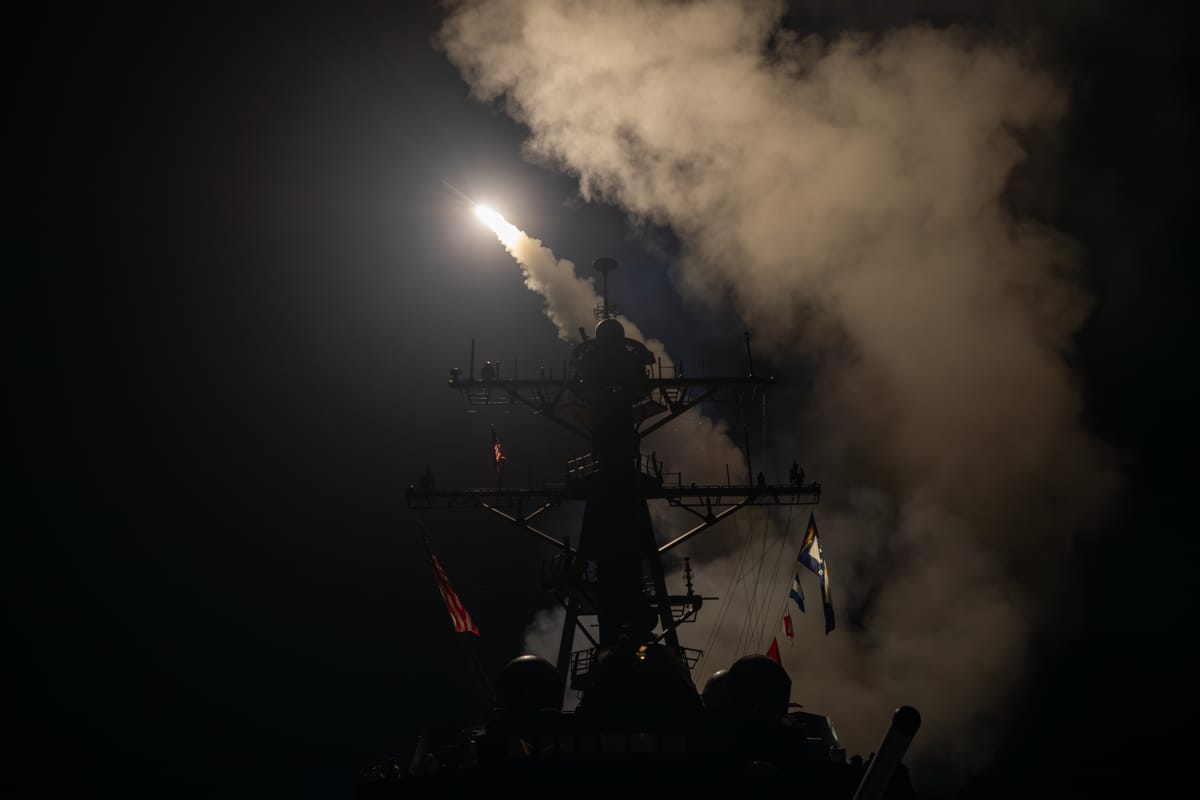
But Iran’s regional contest with the United States, Israel and, less so, the Arab monarchies, was underway long before the 7 October Hamas attacks on Israel. Each side has been trying to dominate and deter the other without starting a mutually disastrous war. This contest usually takes place in the shadows but is frequently violent. It is constrained by what all parties call the rules of the game. Although these “rules” have never been clearly defined, there has been enough mutual understanding to contain periodic escalation.
Iran tries to manage escalation by operating through the “axis of resistance” – a network of Iranian militias that it loosely controls in Lebanon, Iraq, Syria, Palestinian Territories and Yemen. A degree of autonomy is essential to the domestic legitimacy of groups such as Lebanese Hezbollah, Palestinian Hamas and Yemen’s Houthis. But it also helps to localise conflicts, hide Iran’s hand and unsettle adversaries. From Tehran’s perspective, the unpredictable behaviour of its local partners sharpens the threat they pose. It’s an Iranian version of what the famous US strategist Thomas Schelling called the threat that leaves something to chance.
Although members of the axis of resistance insist on their autonomy, they’ve also been steadily talking up their supposed unity. In an attempt to rewrite the rules of the game, Lebanese Hezbollah leader Hassan Nasrallah has since early 2023 more forcefully asserted the willingness of axis members to defend one another.
So, Tehran’s apparent surprise at the 7 October Hamas attacks is credible even if that doesn’t reduce Iran’s culpability. But the Hamas attacks also created a problem for Iran. Neither Nasrallah nor Iran wants to sacrifice Hezbollah – perhaps the world’s most capable non-state militia – for Hamas – a sometimes fickle Iranian partner. Exchanges of fire between Israel and Hezbollah have certainly escalated since 7 October but Hezbollah has not opened the second front that many Hamas supporters hoped it would.
Still, to live up to its name the axis of resistance must be seen to be fighting for Palestinians. Iran’s risk tolerance varies from front-to-front. While Iran and Hezbollah have sought to calibrate tit-for-tat exchanges with Israel, Iranian-backed groups in Iraq and Syria have been chancing their hand with ever more attacks on US forces.
But Yemen’s Houthis have really sought to lead the charge. Their recklessly provocative attacks on Red Sea shipping appear intended to induce retaliation and entangle the United States in a renewed conflict in Yemen. That alone should give Western decision-makers cause for pause.
There are many possible reasons why the Houthis are trying to put themselves at the vanguard of the Palestinian struggle, but advancing Palestinian self-determination is not high on the list. By intelligently aligning their demands – that “crimes in Gaza stop and food, medicines and fuel are allowed to reach its besieged population” – with those of the Arab world and an overwhelming majority of UN member states, the previously obscure (and still obscurantist) Houthis now enjoy international notoriety on a par with Hamas and Hezbollah. That, in turn, has strengthened their position in Yemen’s domestic power struggle and in peace negotiations with Saudi Arabia.

From Tehran’s perspective, Yemen also offers an ideal front for post-7 October escalation. Iran has less interests in Yemen than it does in Iraq, Syria or Lebanon. Houthi attacks on Red Sea shipping have, until recently, helpfully diverted attention from theatres – especially Lebanon – where Iran wants to closely calibrate escalation.
For Iran, the more deeply embroiled the US becomes in Yemen the better. Renewed conflict in Yemen might also strain the US-Saudi relationship. Riyadh would be happy to see the Houthis crushed, but having entirely failed to achieve this during its seven-year military intervention in Yemen has given up hope that it can be done. In an ironic reversal of roles, Riyadh has been urging US “restraint” on Yemen.
Although Yemen and the Houthis are not yet a core Iranian interest, resumption of its civil war would also provide the optimal environment for Iran to continue building up Houthi “resistance” capabilities, just as it did for Hezbollah and other partners over many years of conflict in Lebanon, Syria and Iraq.
For many observers, the US and UK strikes on Houthi targets in Yemen that began on 11 January were long overdue. But Washington was wise to delay, and seek wide support for, this action. Given the minimal international support for strikes and low likelihood of militarily deterring continued Houthi attacks, the United States should remain leery about being drawn into what looks like an Iranian trap. The history of military intervention in the Middle East has underscored the high risk of unintended consequences. The Houthis are not the only threatening actor in Yemen. Al-Qaeda in the Arabian Peninsula – based in Yemen – was long seen as al-Qaeda’s most potent offshoot.
The security of shipping in the Red Sea is a global issue that requires an international solution. Patience helped extract a UN Security Council resolution condemning the Houthi attacks. With time, other countries – notably China – might be induced to take on more responsibility. In an election year, the Biden administration would be unwise to take on this responsibility itself and allow Yemen to become a test of US resolve.
